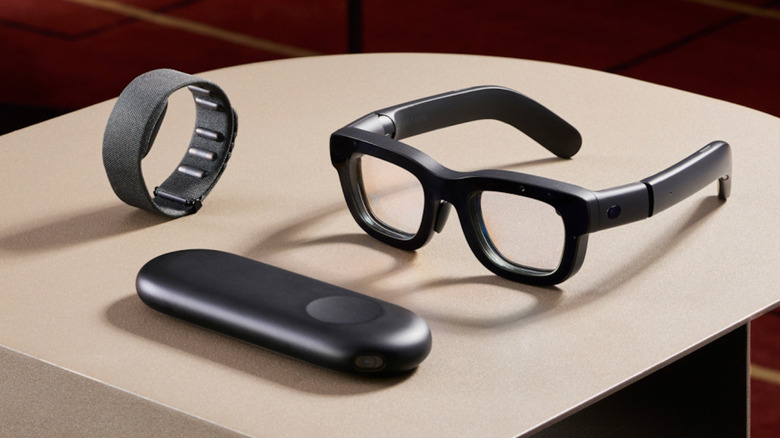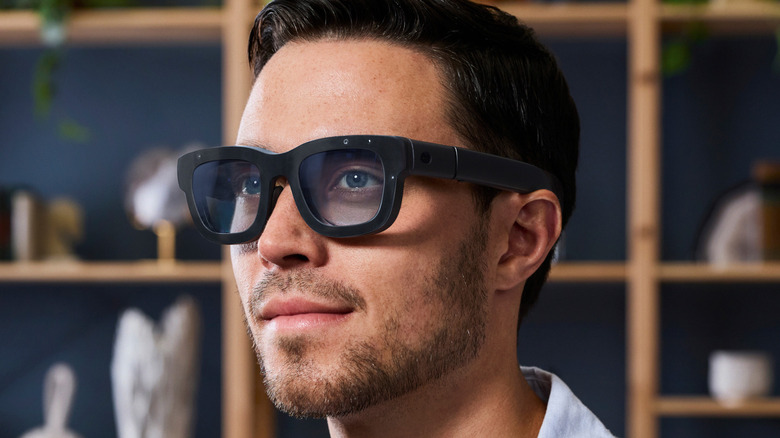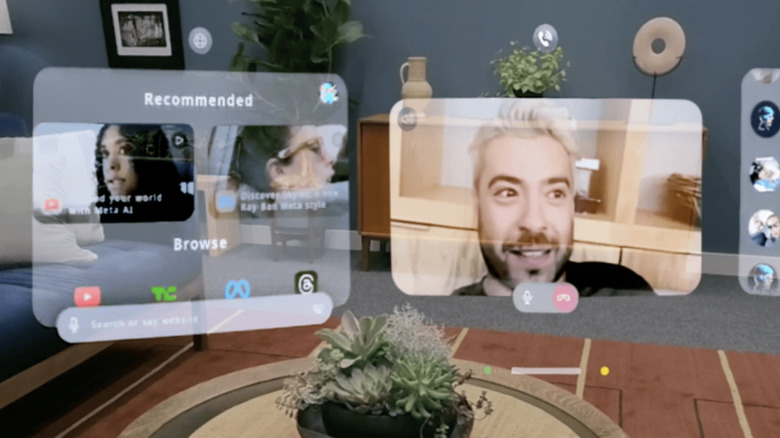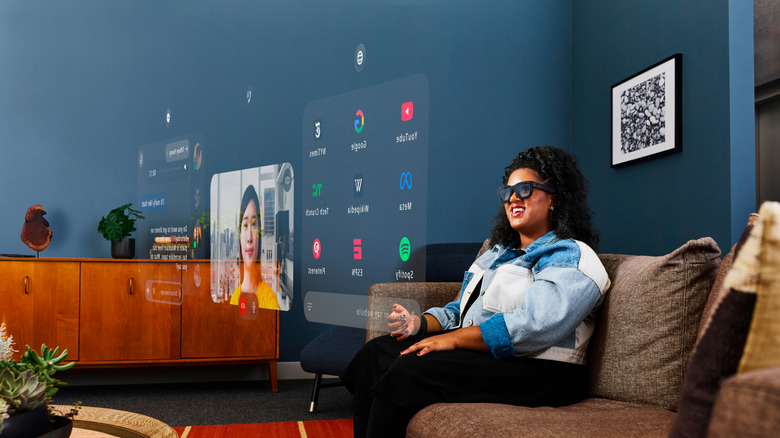Mark Zuckerberg Thinks This New AR Tech Could Change The Future—Here's What It Is
At this year's Meta Connect 2024 event, Mark Zuckerberg dropped some big news — Meta exists in multiple realities. Not alternate dimensions (although who knows?), but rather the types of wearable technology the company is offering consumers — in addition to the virtual reality headset Meta Quest 3S , Meta has announced Orion, its most advanced set of augmented reality glasses to date. Unlike VR, which animates or otherwise presents immersive visual information to a user, augmented reality (AR) overlays digital information and images onto your actual surroundings, allowing you to interact with real world elements. The technology, which has been around in some form for years, has been expected to eventually become a more important interface for a wide range of applications, including business, educational, entertainment, and more.
With the Apple Vision Pro and now Meta's new Orion glasses, augmented reality is poised to take a much bigger step into the mainstream. One big hurdle for the tech has been the bulky hardware, which isn't practical to walk around with. Unlike VR, which can be used in a stationary setting for most purposes, augmented reality could be useful throughout your day, which is why the tech needs to be unobtrusive as you wear it. Meta's Orion isn't much larger or heavier than a standard pair of eyeglasses — plus they look like eyeglasses, so you won't need to feel self-conscious about standing out with an odd-looking accessory, which was a common complaint when Google tried launching its similar product, Google Glass , over a decade ago.
Orion is a natural evolutionary step from Ray-Ban Meta glasses
Meta first announced it was working on an AR headset five years ago, and Orion was developed under the codename Project Nazare . The company says the glasses are "the result of breakthrough inventions in virtually every field of modern computing" and are "the most advanced pair of AR glasses ever made." The tech includes artificial intelligence, which helps sense your surroundings and predict what information or activities you may need at the moment.
The glasses are a natural progression of Ray-Ban Meta glasses, smart glasses that allow you to access a camera and smart assistant, but don't provide true AR. While innovative, the product has struggled to find a wide user base. With more advanced technology and use cases, Meta hopes the same won't be true for Orion. The company says they can be used both indoors and outdoors, and "lenses" inside the frames provide holographic displays that will present both 2D and 3D information in front of you. The glass is transparent, so people around you will still be able to clearly see your eyes and expressions, unlike the workaround (and somewhat creepy) "video feed" of your eyes that are displayed on the front of Apple's Vision Pro headset.
With augmented reality, smaller is better
The key for AR to catch on — at least according to Meta (as well as many other tech experts) — is that the hardware needs to be small enough to practically wear and use throughout the day. The tricky part is getting all the necessary technology miniaturized so that they can fit in such a small package, and even a company with the resources and brainpower of Meta has struggled to accomplish this. In its announcement, the company even admitted that it thought it "had less than a 10% chance of pulling it off successfully."
However, many of the components of the Orion are fractions of a millimeter in size and Meta's team innovated several designs to fit AR tech into the shape of a standard pair of eyeglasses. Orion also provides the largest ever field of view for an AR headset of its size. This allows users to open multiple windows or see life-size holographic images of people, among other use cases. Theoretically, you could then video conference — through Messenger or WhatsApp, for example — with the digital likeness of a person as if they're standing right in front of you.
Orion isn't quite ready for primetime, yet
Orion is controlled by Meta AI. One example Meta provides is that you can open your refrigerator and ask the smart assistant to provide recipes based on the food it sees inside. However, you won't be able to take advantage of this groundbreaking tech just yet. Orion isn't available for consumers — instead, it's a prototype intended to tease the future of what's to come in the AR field. For now, Meta is focusing on developing the technology further and testing it with Meta employees and "select external audiences" so that the development team can refine and advance the product before it's ready for store shelves.
Meta says that it hopes its AR products will be available to the public "in the next few years." When it does finally launch, Orion may be even smaller and closer in size to a standard pair of eyeglasses. Meta says it's also hoping to improve the AR display quality and figure out how to build them at scale to lower the overall price. (One hurdle for the Apple Vision Pro has been its $3,500 price tag , in addition to its bulky battery and overall design.)
So, while you likely won't be able to sport a pair of Orion glasses next year, Mark Zuckerberg certainly hopes you will eventually — and is clearly willing to put more time and money into development so that Orion becomes an actual reality — and not just an imaginary one — rather than later.



